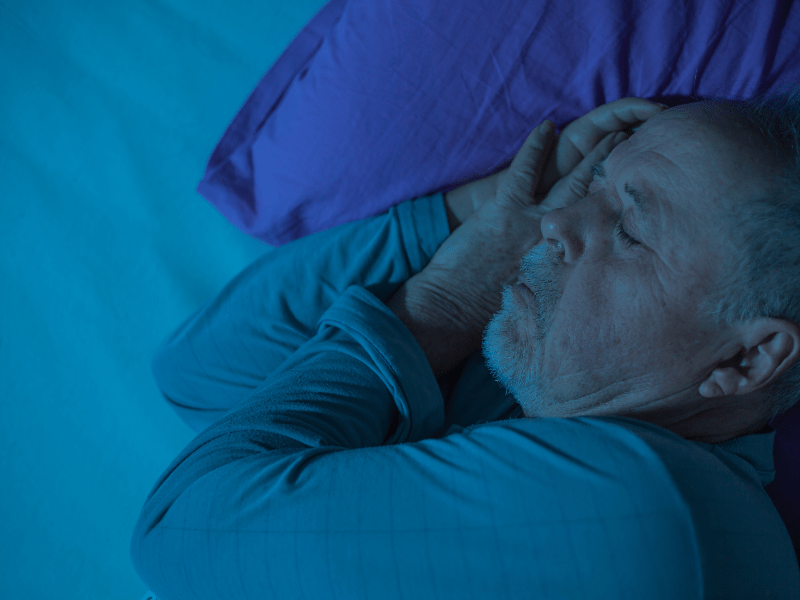Introduction
Have you ever wondered, "Does Benadryl make you sleepy?" This is a common query usually asked by individuals dealing with sleep issues or severe allergies. In reality, Benadryl is indeed a sedating antihistamine known to induce drowsiness in many people. It can help ease symptoms of an allergic reaction and make it easier to fall asleep.
Through this blog post, we will delve into the science behind its sleep-inducing properties and discuss other vital aspects such as side effects and other considerations.
Stick around; your nighttime Benadryl challenge might just find its solution here!
How Does Benadryl Make You Sleepy?
Benadryl makes you sleepy because it contains a central chemical component called diphenhydramine. This active ingredient, classified as a first-generation antihistamine, is known to induce drowsiness as one of its side effects.
It works by blocking certain effects of histamines that your body produces during allergic reactions, such as hay fever or a runny nose, or when you are feeling hyperactive or agitated. As these histamines get blocked, your body experiences the sedating effect better known as somnolence or sleepiness. This sleep-inducing property has led many people to use Benadryl for short-term sleep problems.
Most people notice increased drowsiness due to Benadryl's sedative properties and tranquilizer effect, which can improve sleep quality for those struggling with temporary sleep issues. In addition to treating allergy symptoms, it is also used to relieve cold symptoms.
However, it's important to note that while effective in some cases, not all individuals may find this medication helpful with their sleeping issues. In addition, sleep medication is not meant to be a long-term solution in most cases.
Side Effects and Considerations
- Drowsiness is the most common side effect of antihistamines like Benadryl, as they have sedating properties.
- Some people may experience next-day drowsiness after taking Benadryl, which can affect their ability to perform certain tasks.
- Other potential side effects of Benadryl include dry mouth, blurred vision, constipation, and urinary retention.
- Long-term use of diphenhydramine (the active ingredient in Benadryl) for sleep is not recommended due to potential risks and lack of research supporting its effectiveness.
- It is important to follow the recommended dosage guidelines for Benadryl and consult a healthcare professional before using it as a sleep aid.
- Children may experience opposite reactions to Benadryl, such as hyperactivity or agitation, instead of sleepiness.
If you have chronic sleep problems, there are many different non-medication interventions you can try with the assistance of a healthcare professional, such as Cognitive Behavioral Therapy for Insomnia.
Remember to consult your doctor or pharmacist if you have any concerns about using Benadryl, other first-generation antihistamines, or any medications for treating allergies as sleep aids.
Conclusion
In conclusion, Benadryl is a drowsy antihistamine that can make you sleepy. Its sedating effects are often used for short-term sleep problems. However, it's important to consider potential side effects and consult with a healthcare professional before using Benadryl as a sleep aid.
The quality of your mattress can greatly affect the quality of your sleep. iSense adjustable-firmness mattresses feature twenty different settings on each side of our firmness beds. From soft to firm, enjoy head-to-toe pressure relief across all settings. If you’re struggling to get a good night’s rest, don’t compromise. Try iSense risk free for up to 180 nights here.
FAQs
1. Does Benadryl make you sleepy?
Yes, Benadryl is known to cause drowsiness and sedation as one of its common side effects.
2. How long does it take for Benadryl to make you sleepy?
The onset of drowsiness can vary from person to person, but typically, the effects of Benadryl start within 30 minutes to an hour after taking it.
3. Can I take Benadryl during the day if I don't want to feel sleepy?
If you need relief from allergy symptoms without feeling sleepy, there are non-drowsy allergy medications available that may be more suitable for daytime use. It's best to consult with a healthcare professional to determine which option is right for you.
4. Are there any precautions or considerations when taking Benadryl for sleepiness?
While Benadryl can help with addresiing trouble sleeping, it's important to follow the recommended dosage and guidelines provided by your healthcare professional or on the product packaging. It's also essential not to operate heavy machinery or engage in activities requiring alertness until you know how your body responds to the medication.
If you have any underlying health conditions or are currently taking other over-the-counter medications, including cold medicines or dietary supplements, it's advisable to consult with a healthcare professional before using Benadryl for sleep purposes.
In addition, it is important to note that sleep medications are usually best only for short-term use. Non-medication solutions such as Cognitive Behavioral Therapy for Insomnia can usually provide long-lasting relief.






















